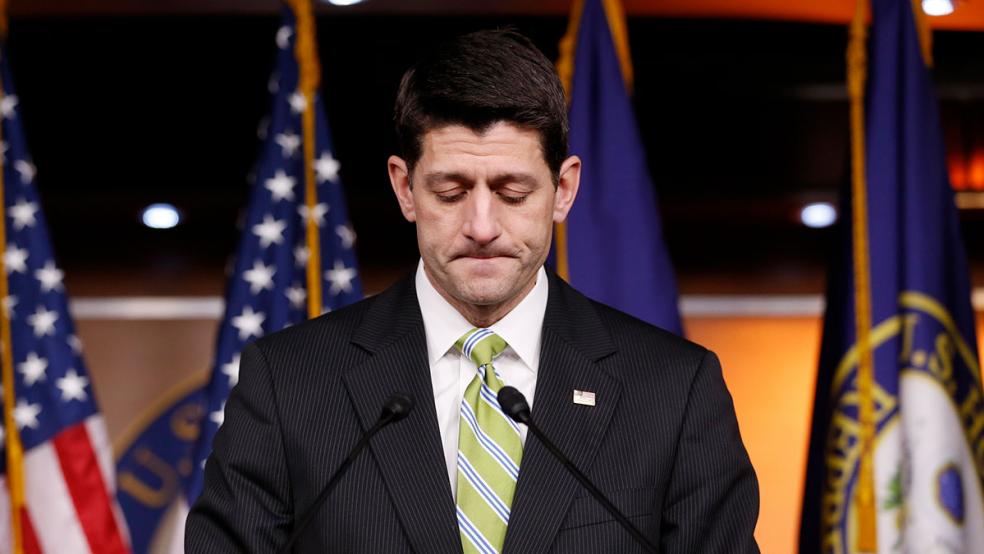Though it may seem far off, there is a deadline approaching for congressional Republicans to follow through with their plan to repeal and replace the Affordable Care Act. If past legislative efforts at serious health care reform are any guide, time is looking very tight indeed.
The problem is that the only way Senate Republicans can muscle a repeal of the ACA through their chamber is by making it part of budget reconciliation legislation. Because it’s immune to the filibuster, Republicans can pass a reconciliation measure with just 51 votes, allowing their slim majority -- if they can keep all but two senators from breaking ranks -- to have its way without Democratic cooperation.
Related: What If the GOP Can’t Get a Health Law Passed?
The plan is to insert health care reform into a reconciliation measure that applies to the 2017 federal budget. But that is only possible if the bill passes and gets signed during the 2017 fiscal year, which ends on September 30.
In an appearance on Fox & Friends Tuesday, House Speaker Paul Ryan tried to project confidence about the speed at which the Senate will act.
“The legislation should not take that long. Hopefully it takes a month or two to get it through the Senate,” he said. “Hopefully it takes a month or two. Because we need to give people the ability to plan. The insurers are pulling out very, very quickly. And we need to show the insurers there’s a better system coming. Stay in the market.”
First, some honest talk on legislative timing.
Related: Why the GOP Health Care Plan Could Still Go Down in Flames
As Speaker Ryan well knows, what congressional Republicans are trying to do is restructure the funding system for an industry that accounts for nearly 18 percent of the entire U.S. economy. Past efforts dragged on for more than a year -- notably the Clinton administration’s failed attempt to reform health insurance in the early ‘90s and the more successful legislative journey of the ACA in 2009 and 2010.
The measure that passed the House of Representatives last week, the American Health Care Act, is an anomaly, having been cobbled together in a few months. And frankly, it shows. Speaker Ryan admitted over the weekend that the House is counting on the Senate to do some work that it didn’t do in crafting the legislation. And health care experts warn that the measure could result in widespread reductions in the health insurance rate and in the quality of care delivered to many who are able to retain it.
Senate leaders have indicated that they plan to take their time in developing an alternative, starting from scratch rather than taking the AHCA and amending it. And any bill likely to earn the support of moderate Republicans senators is going to have to contain measures that strict conservatives can’t tolerate. That means that even if senators manage to get a bill through their chamber, they will face a contentious conference committee with the House.
A group of 13 senators is in the process of crafting a draft of a health care reform proposal. When there is legislative language, it would have to be reviewed by the various senate committees with jurisdiction over the various arms of the health care industry -- at a minimum that’s the Health, Education, Labor, and Pensions Committee, and the Budget Committee. But the Finance Committee, Judiciary Committee and Homeland Security and Governmental Affairs Committee could all make credible claims of jurisdiction as well.
Related: The GOP’s Bizarre Gamble on Health Care Reform
With all that on their plate, time is not in their favor. The Senate is scheduled to be in session for 48 days between Wednesday and the August recess, with 17 more days in session between their return and the end of Fiscal 2017 on September 30.
It’s also important to bear in mind that Senate won’t be working on health care reform in a vacuum. At the same time, lawmakers will be trying to come to agreement on a Fiscal 2018 spending bill so that the government doesn’t face another shutdown threat on October 1. They’ll also likely have to take up the matter of raising the debt ceiling at the same time.
Say, for the sake of argument, that the Senate manages to write and pass a health care reform measure by the end of July. Even in that unlikely scenario, they would return in September with very little time to reach a compromise with the House of Representatives. Senators will be in Washington for 17 days in September, House members for only 12.
So what happens if Congress can’t get a 2017 reconciliation package together before the end of fiscal 2017?
Related: GOP Struggles to Explain AHCA’s $880 Billion Medicaid Cuts
Well, there is nothing to prevent them from passing a reconciliation package for the 2018 budget that includes health care reform. However, Senate rules effectively allow only one reconciliation bill in a given fiscal year, and the 2018 version is already earmarked for another major Republican priority: tax reform.
(Technically, there can be three reconciliation bills, but the topics of spending, revenue and the debt ceiling can only be addressed once each, and a health care reform package would touch both spending and revenue.)
Senate reconciliation rules would also prevent Republicans from combining both health care reform and tax reform in a single reconciliation package.
What this means is that unless the Senate rushes a health care plan through its committee system and somehow finds common ground with the House, there is a very strong possibility that the Republicans in Congress -- and President Trump -- are going to have to choose between two major promises later this year, in the knowledge that they will have to answer to their voters at the polls in 2018.





